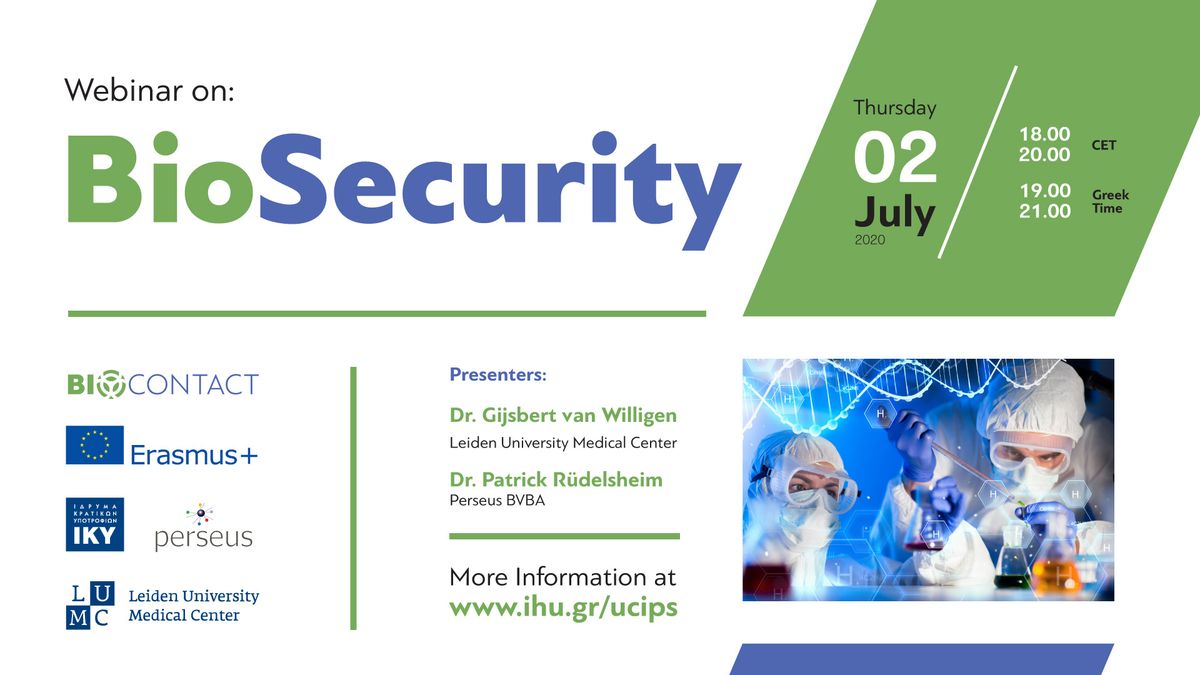Webinar on Biosecurity
By Dr. Patrick Rudelsheim, Dr. Gijsbert van Willigen
The international Hellenic University invites you to attend an open Webinar on Biosecurity, held via the Software Zoom (https://zoom.us/), on Thursday 2 July, at 18.00-20.00 CET (19.00-21.00 Greek Time). Please register at: https://e-services.ihu.edu.gr/registration-form/1620/online-form.
Summary
Some biological materials have the capacity to cause harm. For most people involved in life science this is the justification for implementing laboratory biosafety based on containment principles, technologies, and practices to protect people from biological agents, and prevent accidental release of biological agents. Yet, the capacity to cause harm can also be misused and laboratory biosecurity measures therefore aim to prevent theft and intentional malicious use of biological agents. Special attention is required for so-called dual-use goods, materials that have a civilian and a military application. Dual-use biological agents can be used in bioterrorism.
Besides the wild type agents themselves, biological agents can also be modified in the lab to become more dangerous than the wild-type organism itself. This is called dual-use research of concern (DURC). One type of DURC research is gain-of-function (GOF) research. Besides the risks of dual-use agents and DURC/GOF also ethical questions can arise from the application of GOF.
Understanding these security threats, both biosafety and biosecurity should be an integral part of program management of organizations handling dangerous pathogens, in order to prevent potential undesired spread, theft, malicious use, and bioterrorism.
The lecture will focus on:
- what should be part of a proper laboratory biosecurity program and who are stakeholders in the program
- what are dual-use materials
- what are dual-use biological agents are and the basis why agents are classified as dual-use. The criteria include besides the pathogenicity also other factor such a how can they be cultured and dispersed.
- types of research will be presented as examples of DURC/GOF and published examples will be discussed.
- ethical questions



